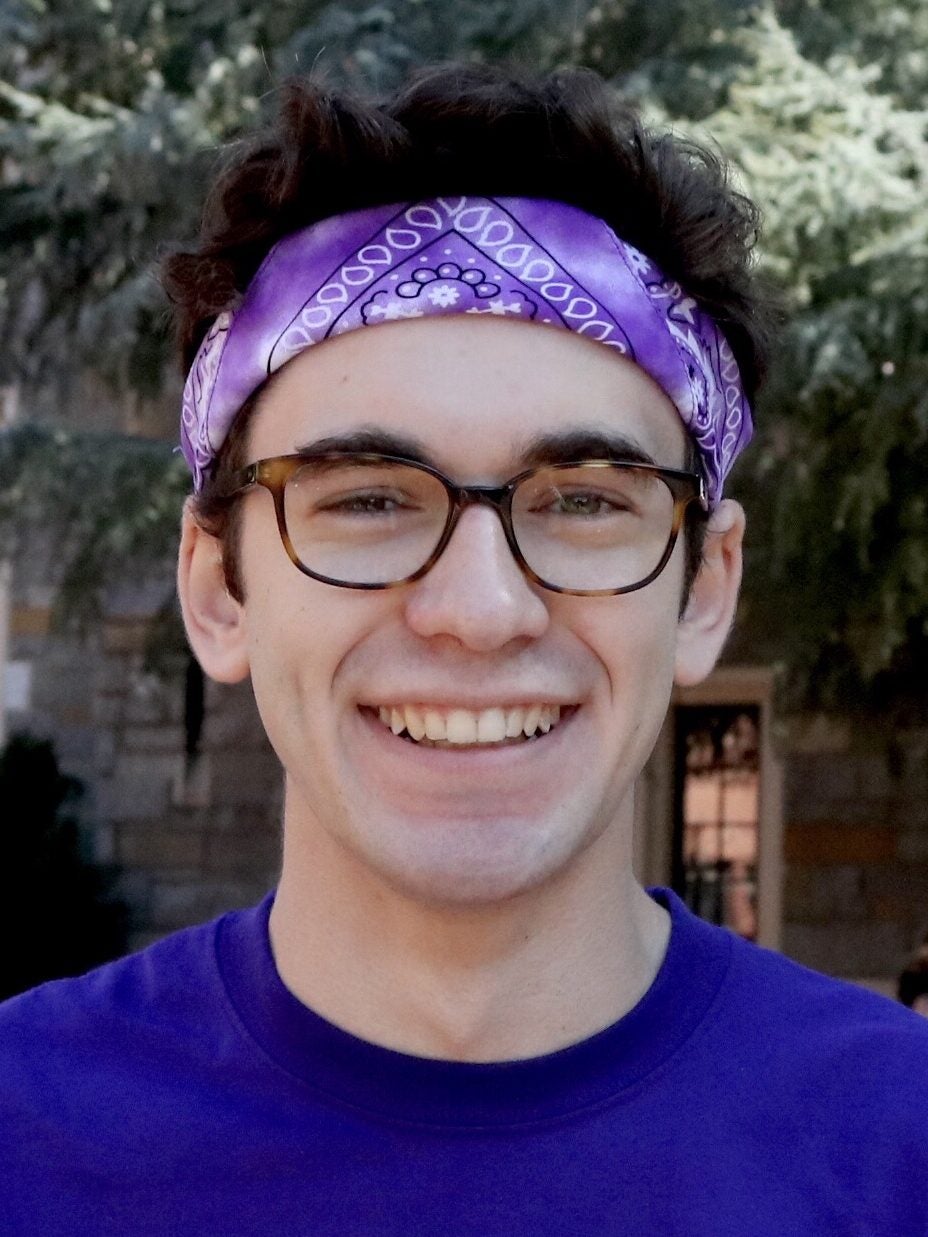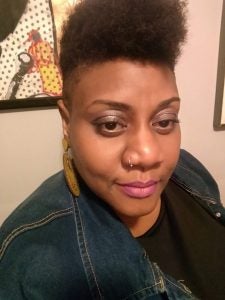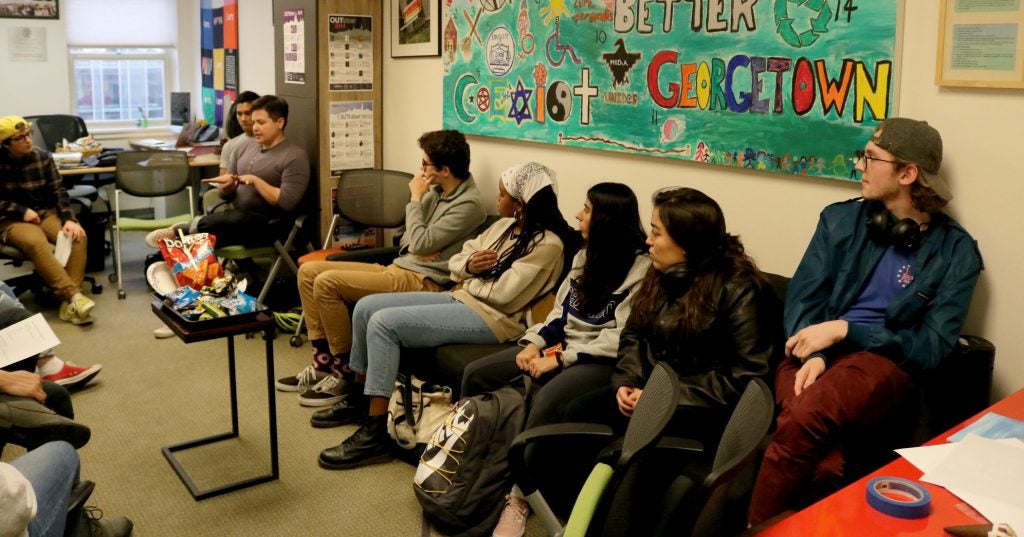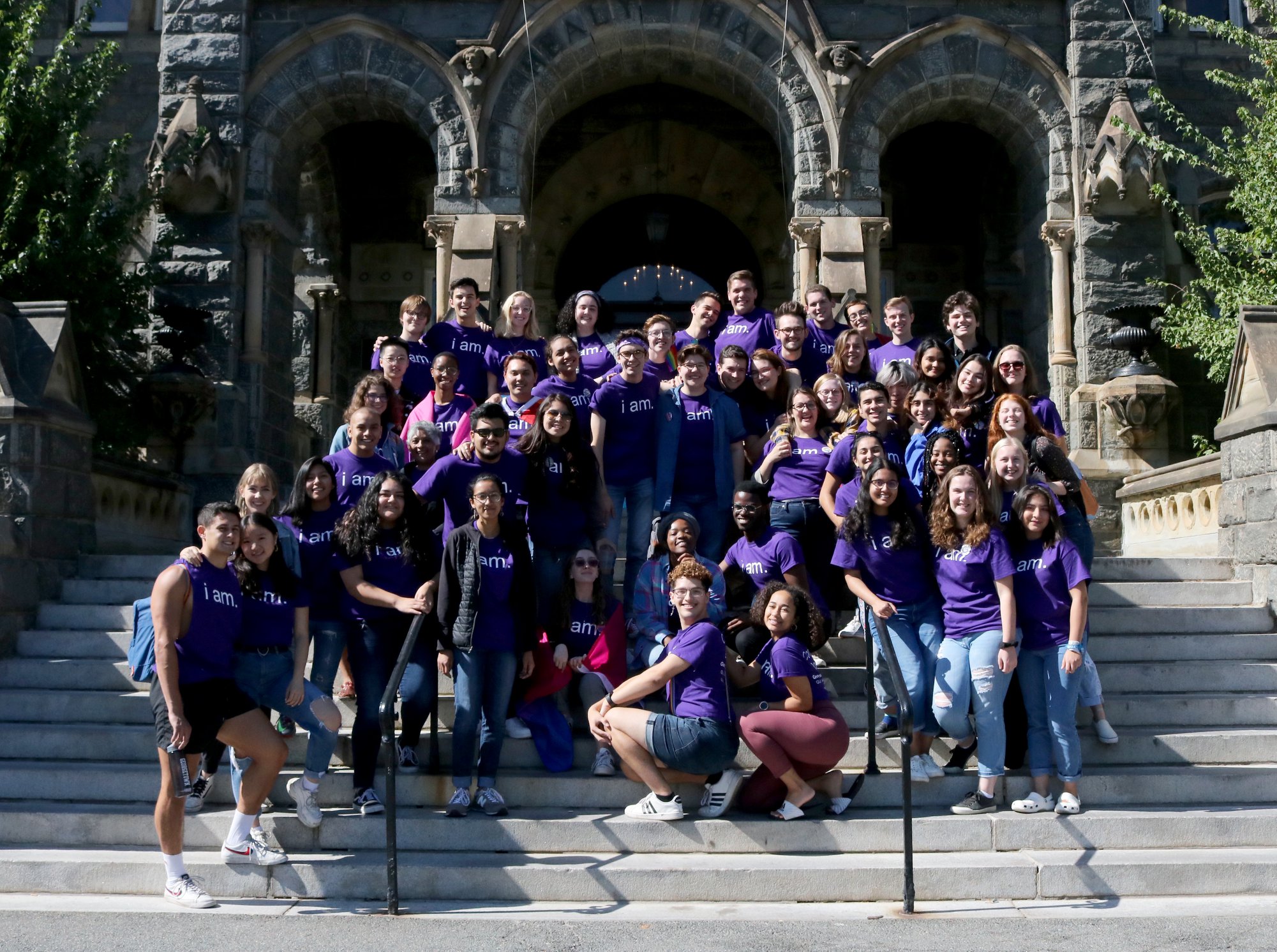Junior Helps to Implement Innovative Programming by New LGBTQ Resource Center Assistant Director
Ben Telerski (C’23) started working at the LGBTQ Resource Center during his first week at Georgetown. Throughout a global pandemic, the junior contributed to the creation of virtual programming under the leadership of Amena Johnson, who has plans to further develop the center as a resource for students on and off campus.
Incoming Initiative

From Nashua, NH, Telerski became involved in the LGBTQ Resource Center soon after arriving on campus in the fall of his first year. After learning about the center, Telerski applied and was accepted to work as a program assistant where he planned events, developed community outreach and interacted with students that visited.
“One of the things that I was really proud of were the coffee hours with different campus partners that we held each Friday,” says Telerski. “We would bring in members from the Office of Global Education to talk about studying abroad as a member of the LGBTQ community or we would host a partnered event with the Women’s Center. It really brought the community together in a shared space, which was very special to me.”
Telerski says that he made the decision to be fully out once he came to Georgetown and that the LGBTQ Resource Center helped welcome him as he embraced his identity.
“The very first weekend I was here was when I had my interview for the center and it was nerve wracking walking in there for the first time being fully out,” Telerski explains. “Coming out requires a lot of courage, so if a student doesn’t have access to that safe space it can be terrifying. This was a particular challenge we faced at the center after moving to a virtual environment.”
Creating an Inclusive Center

Four months after starting in her role as assistant director of the LGBTQ Resource Center, Johnson had to pivot the center’s focus to accommodate and advocate for students online. Though each area on campus was faced with reformatting its programming, the LGBTQ Resource Center was one of the few units that were tasked with navigating the well-being of students as they returned home.
“Unfortunately, some of our students have home environments that are less than welcoming of their LGBTQ identity, which meant that they had to go back into the closet to some degree,” says Johnson. “Additionally, some students had started to come out or were beginning to do the work to understand their sexual orientation or gender identity and that process was cut off as we moved to a virtual environment.”
At the start of the pandemic a few students needed housing assistance to avoid unsafe living situations, but as the pandemic stretched on, increasingly large numbers of LGBTQ students were dealing with hostile homes. Johnson worked with a team of Georgetown staff to situate students in at-risk home situations with safe housing options.
As the campus plans to reopen in the fall, Johnson says that her biggest priority is to amplify the center as a resource to students.
“Since this is the first time that many first-year students and sophomores will be stepping foot on campus, I want to make sure that they are aware that we exist and are a resource for them and I want to make sure that students know who I am and that I am a resource as well,” says Johnson. “I also want to make sure that I engage with students and ask what they want and need from the center and develop our programming accordingly.”
A queer, Black, woman, Johnson plans to structure all of the center’s programming through an intersectional lens that will welcome LGBTQ students, their allies and those who want to become more involved with the community.
“The joke I often tell is that I wish I could wake up in the morning and say ‘I’m just going to be a lesbian today, not a woman and not going to be Black,’ but I can’t do that because I hold all of those marginalized identities within me that has caused me to have my own unique experience,” Johnson says. “When our students come into our office they are not only LGBTQ, they have races and genders and they have other marginalized identities that are not LGBTQ identities. I want to make sure that our programs will speak to everybody in all parts of their identity.”
In order to achieve this goal, Johnson will invite speakers from diverse backgrounds and identities such as Black and brown folks, those who come from lower-class backgrounds, non-English speakers and immigrants.
She also plans to continue to run the Queer Careers program that was started on Instagram during the pandemic. The center interviewed LGBTQ individuals from a range of careers such as artistry, HR and engineering to speak about their work and experiences.
The LGBTQ Resource Center is planning to continue to host OUTober in fall semester as well as Lav Grad, but notes that she would like to add in another signature spring program other than the LGBTQ graduation.
Johnson partners with the Women’s Center, Georgetown Scholars Program (GSP), Center for Multicultural Equity and Access (CMEA), and Office of Student Equity and Inclusion (OSEI) on campus, but hopes to develop further collaborations with other programs such as the Women’s and Gender Studies Program. She is currently working with the Center for New Designs in Learning and Scholarship (CNDLS) to implement training for incoming faculty and staff about basic care for LGBTQ students.

About to begin his junior year, Telerski is still involved with the center. He recently sat on a panel for the Summer Hilltop Immersion Program (SHIP) students to discuss the work being done and is helping to organize an event that will discuss the history of the LGBTQ community on campus.
A government major with a Spanish minor, Telerski is also involved with Pride, Pep Band, New Student Orientation, and the Georgetown Admissions Ambassador Program (GAAP). This fall he will be a Title IX Ambassador, working with the Title IX office to educate the campus community on resources for those impacted by sexual misconduct.
Telerski says that his time with the center enabled him to come into his full identity in college.
“For me, being involved in the center has meant having a safe space to be openly gay,” says Telerski. “Being able to put on events, interact with other students and be a leader as a first-semester student was a great way to become involved in the Georgetown community right away. Advocating and building a community on campus is important and I want to continue to work to build that space so the students who have not been able to have that support for a full year feel welcomed, loved and accepted when they return.”
-by Shelby Roller (G’19)
